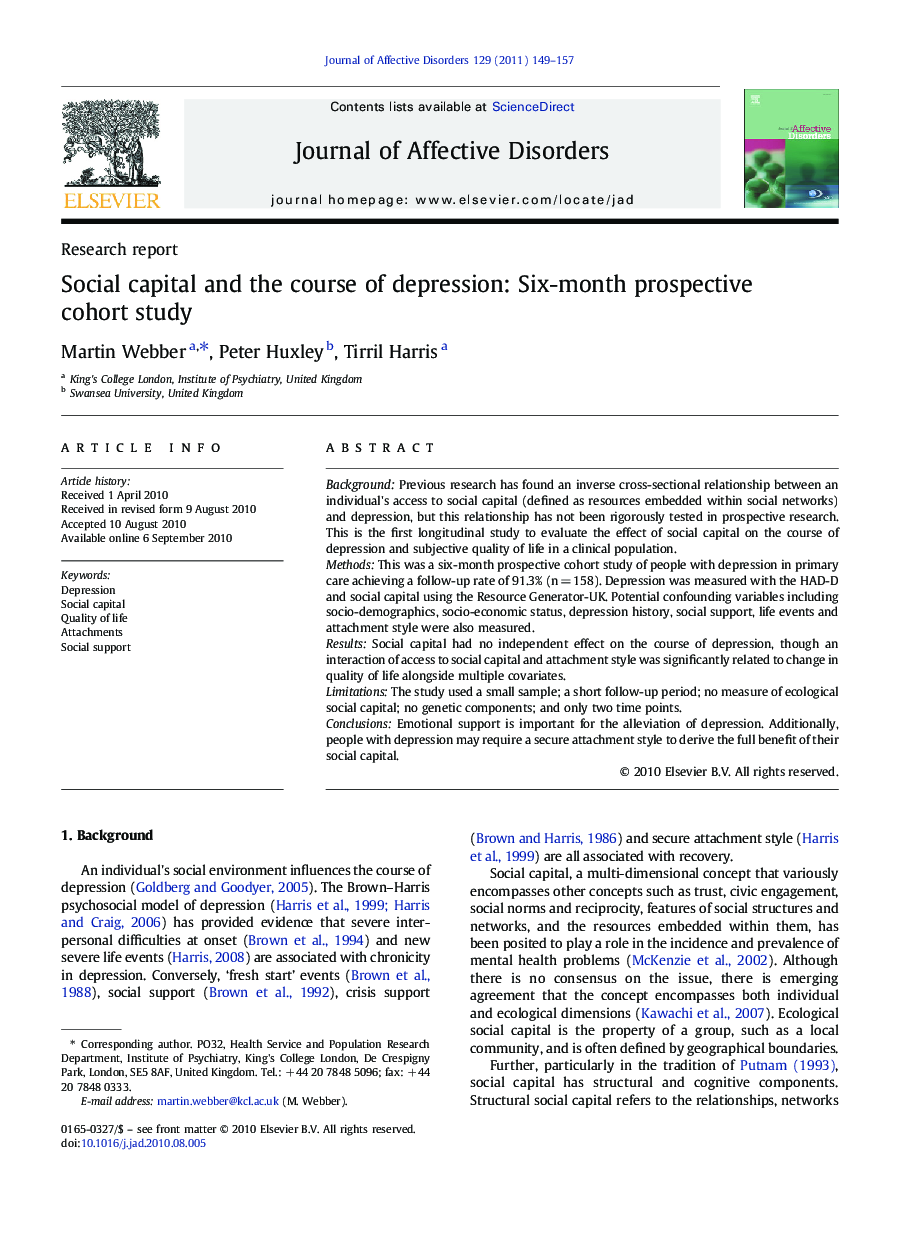| Article ID | Journal | Published Year | Pages | File Type |
|---|---|---|---|---|
| 4186518 | Journal of Affective Disorders | 2011 | 9 Pages |
BackgroundPrevious research has found an inverse cross-sectional relationship between an individual's access to social capital (defined as resources embedded within social networks) and depression, but this relationship has not been rigorously tested in prospective research. This is the first longitudinal study to evaluate the effect of social capital on the course of depression and subjective quality of life in a clinical population.MethodsThis was a six-month prospective cohort study of people with depression in primary care achieving a follow-up rate of 91.3% (n = 158). Depression was measured with the HAD-D and social capital using the Resource Generator-UK. Potential confounding variables including socio-demographics, socio-economic status, depression history, social support, life events and attachment style were also measured.ResultsSocial capital had no independent effect on the course of depression, though an interaction of access to social capital and attachment style was significantly related to change in quality of life alongside multiple covariates.LimitationsThe study used a small sample; a short follow-up period; no measure of ecological social capital; no genetic components; and only two time points.ConclusionsEmotional support is important for the alleviation of depression. Additionally, people with depression may require a secure attachment style to derive the full benefit of their social capital.
